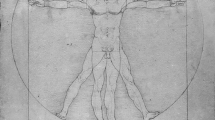Abstract
As is well known, some dreams have been instrumental in important scientific discoveries. Kekulé's dream of the whirling snakes is probably the most famous instance though there was apparently no public written record of it until some 28 years later. Loewi, even in his own autobiographic material, appears never to have provided a written report of the dream that led him to carry out the experiment demonstrating the chemical transmission of nerve impulses to a frog's heart. Mendeleev's dream of the periodic table of elements in its completed form is apparently specious, despite repeated citations. Not only is there no dream report but evidence rests on a colleague's second-hand account. Kedrov's examination of archival material indicates (1) that Mendeleev had already discovered the periodic table before the alleged dream took place; and (2) that a dream quite plausibly occurred somewhat later that depicted an improved representation of the periodic table. Kedrov's reconstruction is consistent with other accounts of dreams and the process of scientific discovery.
Similar content being viewed by others
REFERENCES
Barrett, D. (1993). The “Committee of sleep”: A study of dream incubation of problem solving, Dreaming, 3, pp. 115-122.
Bartlett, F. C. (1932). Remembering. London: Cambridge University Press.
Dement, W. (1972[74]). Some must watch while some must sleep. New York: Norton [San Francisco: Freeman].
Hartmann, E. (1998). Dreams and nightmares. New York: Plenum.
Kedrov, B. M. (1966-67). On the question of the psychology of scientific creativity, Soviet Psychology, 5(2), pp. 26-45.
Loewi, O. (1953). From the workshop of discoveries. Lawrence: University of Kansas Press.
Simon, H. A. (1966-67). Introduction to B. M. Kedrov, “On the question of the psychology of scientific creativity,” Soviet Psychology, 5(2), pp. 24-25.
Strunz, F. (1993). Preconscious mental activity and scientific problem-solving: A critique of the KeKulé dream controversy, Dreaming, 3, pp. 281-294.
Van de Castle, R. L. (1994). Our dreaming mind. New York: Ballantine.
Author information
Authors and Affiliations
Rights and permissions
About this article
Cite this article
Baylor, G.W. What Do We Really Know About Mendeleev's Dream of the Periodic Table? A Note on Dreams of Scientific Problem Solving. Dreaming 11, 89–92 (2001). https://doi.org/10.1023/A:1009484504919
Issue Date:
DOI: https://doi.org/10.1023/A:1009484504919




